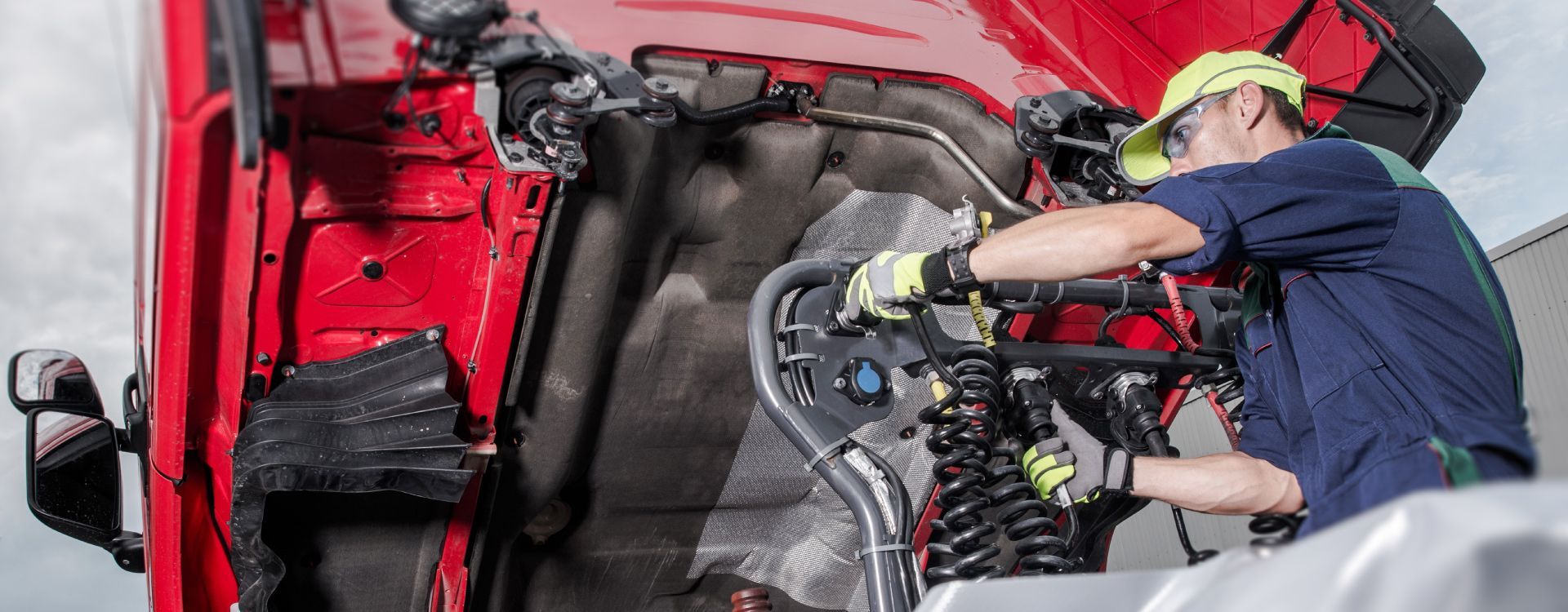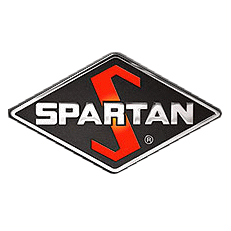The Expert’s Guide to Heavy-Duty Truck Suspension Maintenance
The Expert’s Guide to Heavy-Duty Truck Suspension Maintenance

When it comes to heavy-duty trucks, the suspension system helps the truck's performance, safety, and longevity. A well-maintained suspension system is important for the operation of heavy-duty trucks, which are often subjected to harsh driving conditions and heavy loads. Let’s explore the importance of maintaining your truck's suspension system and provide practical advice on how to care for it effectively with heavy-duty truck repair.
Advantages of a Well-Maintained Suspension System
The benefits of keeping your truck's suspension system in top condition are safety and performance. It enhances the safety of the vehicle by ensuring better control and stability, especially when carrying heavy loads or driving in challenging conditions. Secondly, a well-maintained suspension contributes to a smoother ride, reducing the wear and tear on the vehicle and improving driver comfort. On top of this, it can lead to better fuel efficiency and lower maintenance costs in the long run, as a healthy suspension system puts less strain on other components of the truck.
Maintenance Practices for Suspension
Regular maintenance is key to prolonging the life span of your truck's suspension system. Here are some best practices:
Regular Inspections: Conduct frequent inspections of the suspension system. Look for signs of wear or damage such as cracked springs, worn-out shock absorbers, or loose bolts. Early detection of these issues can prevent more serious problems down the line.
Lubrication: Regular lubrication of moving parts like joints and bushings is essential to reduce friction and wear. Use high-quality lubricants that are suitable for heavy-duty vehicles.
Weight Distribution: Always be mindful of how weight is distributed on your truck. Uneven loads can put extra stress on the suspension system and lead to premature wear.
Timely Replacements: Don’t delay replacing worn-out parts. Using parts beyond their service life can cause damage to other components of the suspension system.
Steering Inspections
The steering system is closely linked to the suspension and requires regular checks. Pay attention to:
Steering Fluid: Check the levels and quality of your steering fluid regularly. Low or dirty fluid can affect steering performance.
Steering Play: Be aware of any excessive play in the steering wheel. This can indicate problems with steering components.
Tie Rods and Ball Joints: Inspect these parts for wear or damage, as they are crucial for accurate steering and overall safety.
Suspension Alignment
Proper alignment of the suspension system is crucial for several reasons. It ensures even tire wear, better handling, and can even impact fuel efficiency. Suspension alignment should be checked regularly, especially if your truck is frequently driven on rough roads or carries heavy loads. If you notice uneven tire wear or your truck pulls to one side, it may be time for an alignment check.
Full Suspension Inspection
A comprehensive suspension inspection is critical to identify potential issues and ensure the longevity of your heavy-duty truck. During a full suspension inspection, the following components should be thoroughly checked:
Shock Absorbers and Struts: These are vital for controlling movement and stability. Check for leaks, cracks, or signs of excessive wear.
Springs: Inspect for cracks, breakage, or sagging. The springs should be intact and robust to support the weight of the truck effectively.
Bushings and Bearings: Look for signs of wear or damage. Worn bushings can lead to increased vibration and noise.
Mounts and Joints: Ensure that all mounts and joints are secure and free of excessive wear or play.
Air Suspension System: If your truck has an air suspension system, check for leaks, proper air pressure, and the condition of air bags.
Alignment: Verify the alignment of wheels and axles. Misalignment can cause uneven tire wear and affect handling.
Educating Drivers About Suspension Problems
Driver awareness is crucial in identifying early signs of suspension problems. Drivers should be trained to notice:
Unusual Noises: Squeaks, rattles, or clunks from the suspension are early indicators of potential issues.
Handling Difficulties: Difficulty in steering or a feeling of instability, especially when carrying loads, can signal suspension problems.
Visible Wear: Regularly checking for visible signs of wear on tires and suspension components.
Educating drivers about these signs and encouraging them to report any concerns promptly can prevent minor issues from escalating into major problems.
Risks of Not Maintaining Heavy-Duty Truck Suspension Systems
Neglecting suspension maintenance can lead to several risks, including:
Safety Hazards: A faulty suspension system can lead to loss of vehicle control, posing a significant safety risk to the driver and others on the road.
Increased Wear and Tear: An unmaintained suspension puts additional stress on other vehicle components, leading to more frequent repairs and reduced vehicle lifespan.
Decreased Performance and Efficiency: Poor suspension affects the truck's handling and can reduce fuel efficiency.
Costly Repairs and Downtime: Neglecting small issues can lead to major breakdowns, resulting in costly repairs and significant downtime.
Contact Mainline RV & Truck Repair for Heavy-Duty Truck Repair
If you’re facing issues with your heavy-duty truck’s suspension system, or if it’s time for a routine check-up, contact Mainline RV & Truck Repair. Our team of experienced professionals specializes in heavy-duty truck repairs and maintenance. Get in touch with us for a quote on heavy-duty truck repair.




















